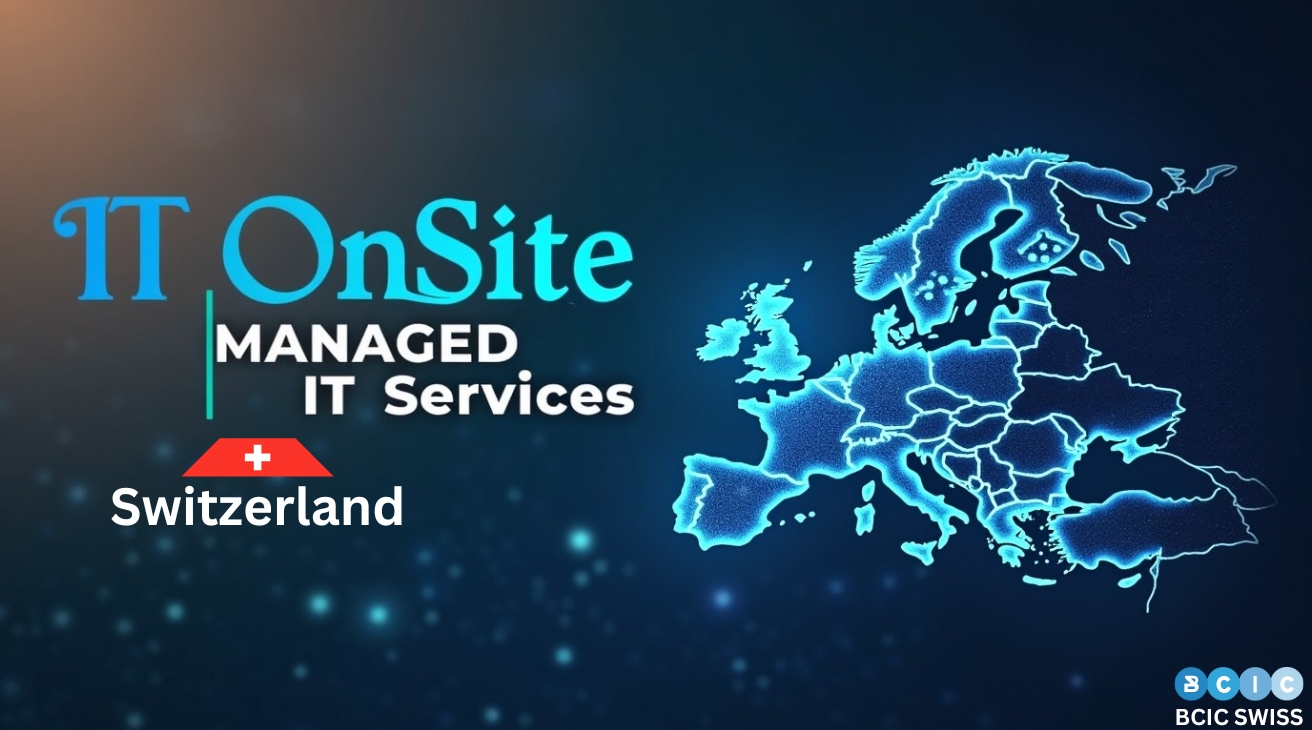Protecting Swiss Companies from Cyber Attacks: Essential Services to Know
In today’s fast-paced digital landscape, Swiss companies face escalating threats from cyber attacks. As technology advances, cybercriminals deploy more sophisticated strategies, making cybersecurity not just a technical issue but a business imperative. This article explores essential cybersecurity services to help Swiss companies protect themselves against cyber threats, ensuring business continuity and safeguarding data integrity.
Understanding Cyber Attacks
Cyber attacks come in various forms, each with the potential to cause severe damage. Some common types include:
-
Phishing Attacks: Attempts to trick employees into divulging sensitive information.
-
Ransomware: Malicious software that locks data until a ransom is paid.
-
DDoS (Distributed Denial of Service): Overwhelms a company's systems, causing disruptions.
Each attack type brings unique challenges, making it crucial for businesses to understand these threats and prepare effective defenses.

The Importance of Cybersecurity for Swiss Businesses
Cyber attacks can have disastrous consequences, including:
-
Financial Losses: Repair costs, fines, and lost revenue.
-
Reputational Damage: Loss of customer trust and potential client defection.
-
Operational Disruptions: Downtime that halts business productivity.
A robust cybersecurity framework prevents these consequences and maintains a company's reputation and financial stability.
Key Cybersecurity Challenges in Switzerland
Swiss companies encounter unique challenges due to strict data privacy laws and a global presence that may attract international cybercriminals. Recent cases of data breaches illustrate the importance of proactive cybersecurity measures.
Essential Cybersecurity Services for Swiss Companies
Investing in comprehensive cybersecurity services is key to preventing cyber attacks. Some essential services include:
-
Network Security: Protects company networks through firewalls and network monitoring.
-
Endpoint Security: Safeguards devices employees use, like computers and smartphones.
-
Cloud Security: Ensures safe use of cloud services and data stored in the cloud.
Network Security Solutions
Effective network security solutions include:
-
Intrusion Detection and Prevention Systems (IDPS): Monitors networks for suspicious activity.
-
Firewalls: Create a barrier between a company’s internal network and external sources.
These systems are essential for detecting and stopping unauthorized access attempts.
Endpoint Security for Employee Devices
Protecting employee devices involves implementing:
-
Antivirus and Anti-Malware: Prevents malicious software from compromising systems.
-
Device Encryption: Protects data even if devices are lost or stolen.
With these tools, companies can mitigate risks associated with remote work and personal devices.
Cloud Security Services
With more companies relying on cloud storage, security becomes paramount. Key cloud security measures include:
-
Data Encryption: Ensures sensitive information remains confidential.
-
Regular Backups: Protects against data loss in case of system failure.
A well-protected cloud infrastructure is essential for companies relying on digital operations.

Data Protection and Encryption Services
Data protection strategies, like encryption, are critical for protecting sensitive information from unauthorized access. By encrypting data, companies can ensure that even if information is intercepted, it remains inaccessible without the proper decryption key.
Cybersecurity Training for Employees
Employees are often the first line of defense against cyber attacks. Training programs teach employees how to recognize phishing scams, use strong passwords, and maintain best security practices, minimizing the risk of attacks due to human error.
Incident Response and Recovery
In the event of a cyber attack, a clear incident response plan is essential. This includes:
-
Identifying the Threat: Recognize and assess the scope of the attack.
-
Containing the Threat: Limit damage by isolating affected systems.
-
Recovering Systems: Restore operations using secure backups.
A structured approach to incident response helps companies resume normal operations swiftly after an attack.Security Audits and Vulnerability Assessments
Regular security audits help identify weaknesses in a company’s defenses. By conducting vulnerability assessments, companies can proactively address security gaps, reducing the likelihood of an attack.
Compliance with Swiss and International Cybersecurity Regulations
Swiss companies must comply with regulations like GDPR, which mandates strict data protection standards. Compliance not only prevents fines but also enhances the company’s security posture.
Managed Security Service Providers (MSSPs)
Outsourcing cybersecurity to Managed Security Service Providers (MSSPs) offers benefits such as:
-
Access to advanced security tools.
-
Round-the-clock monitoring.
-
Specialized expertise.
MSSPs are an effective way for companies to strengthen security without dedicating in-house resources.
Advanced Threat Detection and Artificial Intelligence
AI and machine learning technologies are transforming cybersecurity, enabling faster, more accurate threat detection. Companies can leverage AI to detect anomalies, analyze large datasets, and respond to threats in real-time.

Future of Cybersecurity for Swiss Companies
Companies must stay updated on the latest trends and emerging technologies as cyber threats evolve. This future-focused approach ensures that businesses remain resilient against new types of cyber attacks.
In thast case ,BCIC SWISS offers comprehensive, affordable cybersecurity solutions tailored for Swiss companies, helping them safeguard against today’s evolving cyber threats. Recognizing the unique challenges Swiss businesses face, BCIC SWISS provides essential services like network security, endpoint protection, and cloud security to defend against various attacks, from phishing and ransomware to sophisticated DDoS intrusions.
Our services extend beyond technical solutions; BCIC SWISS emphasizes employee training, enabling staff to spot and avoid potential threats, significantly reducing human-related risks. Additionally, our team conducts regular security audits and vulnerability assessments to identify and address any weaknesses before they become entry points for cybercriminals.
With regulatory compliance crucial for Swiss businesses, BCIC SWISS ensures all cybersecurity measures align with Swiss and international standards like GDPR. Whether you need advanced threat detection using AI or help with incident response and recovery, our Managed Security Services are designed to offer proactive and reliable protection.
For Swiss companies looking to enhance their digital resilience without straining their budgets, BCIC SWISS delivers high-quality, cost-effective solutions for long-term cybersecurity success.
Conclusion and Final Recommendations
Swiss companies should prioritize cybersecurity by investing in essential services, such as network security, employee training, and incident response planning. By implementing these measures, businesses can effectively protect themselves from cyber threats and ensure long-term success.
FAQs on Cybersecurity for Swiss Companies
Q1: What types of cyber-attacks commonly target Swiss companies?
A1: Common attacks include phishing, ransomware, and DDoS, all of which can cause financial and reputational damage.
Q2: How often should Swiss companies conduct security audits?
A2: Ideally, companies should conduct audits at least annually or after significant operational changes.
Q3: How can employees contribute to cybersecurity efforts?
A3: Employees play a vital role by staying alert to potential threats, following best practices, and participating in regular training.
Q4: What is the role of encryption in cybersecurity?
A4: Encryption protects sensitive data, ensuring it cannot be accessed without proper authorization.
Q5: Are there cybersecurity regulations specific to Switzerland?
A5: Yes, Swiss companies must comply with both local regulations and international standards, such as GDPR.
Q6: What are the benefits of working with an MSSP?
A6: MSSPs provide specialized expertise, advanced tools, and 24/7 monitoring, enhancing a company’s security posture.


























